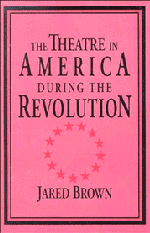SETTING THE STAGE: BRITAIN ASCENDANT
Published online by Cambridge University Press: 29 September 2009
Summary
Objective observers recognized that the ragtag American army could not possibly win the war. If the professionally disciplined British and Hessian troops did not defeat them, their own inexperience and internal bickering would. “[T]he colonies hated each other almost as much as they hated the mother country,” J. H. Plumb has written.
Even some high-ranking American officers saw the futility of attempting to match strength against an enemy that was militarily superior in every respect. Some American soldiers became discouraged and quit the army to return to their homes. Others remained and suffered through one terrible winter after another. While the British army spent its winters in comfort, the Americans, poorly supplied and badly situated, faced the very real dangers of starvation and intense cold – which, combined with illness, claimed as many casualties as did the war.
Despite their many advantages, the British seemed curiously unable or unwilling to press the war to a conclusion. The Americans fought bravely and often victoriously at Bunker Hill, in Canada, in the Carolinas, at Princeton, and at Germantown. Eventually, the French were persuaded that America's cause was not lost and, seeing an opportunity to avenge its defeats against England in 1763, France joined forces with the rebellious Americans.
Even in the face of a more formidable enemy, the British stubbornly refused to change their tactics. They continued to fight a gentleman's war, with lengthy intervals for leisure and luxury, thereby allowing the Continental army to grow in size, strength, and confidence.
- Type
- Chapter
- Information
- The Theatre in America during the Revolution , pp. 69 - 70Publisher: Cambridge University PressPrint publication year: 1995

